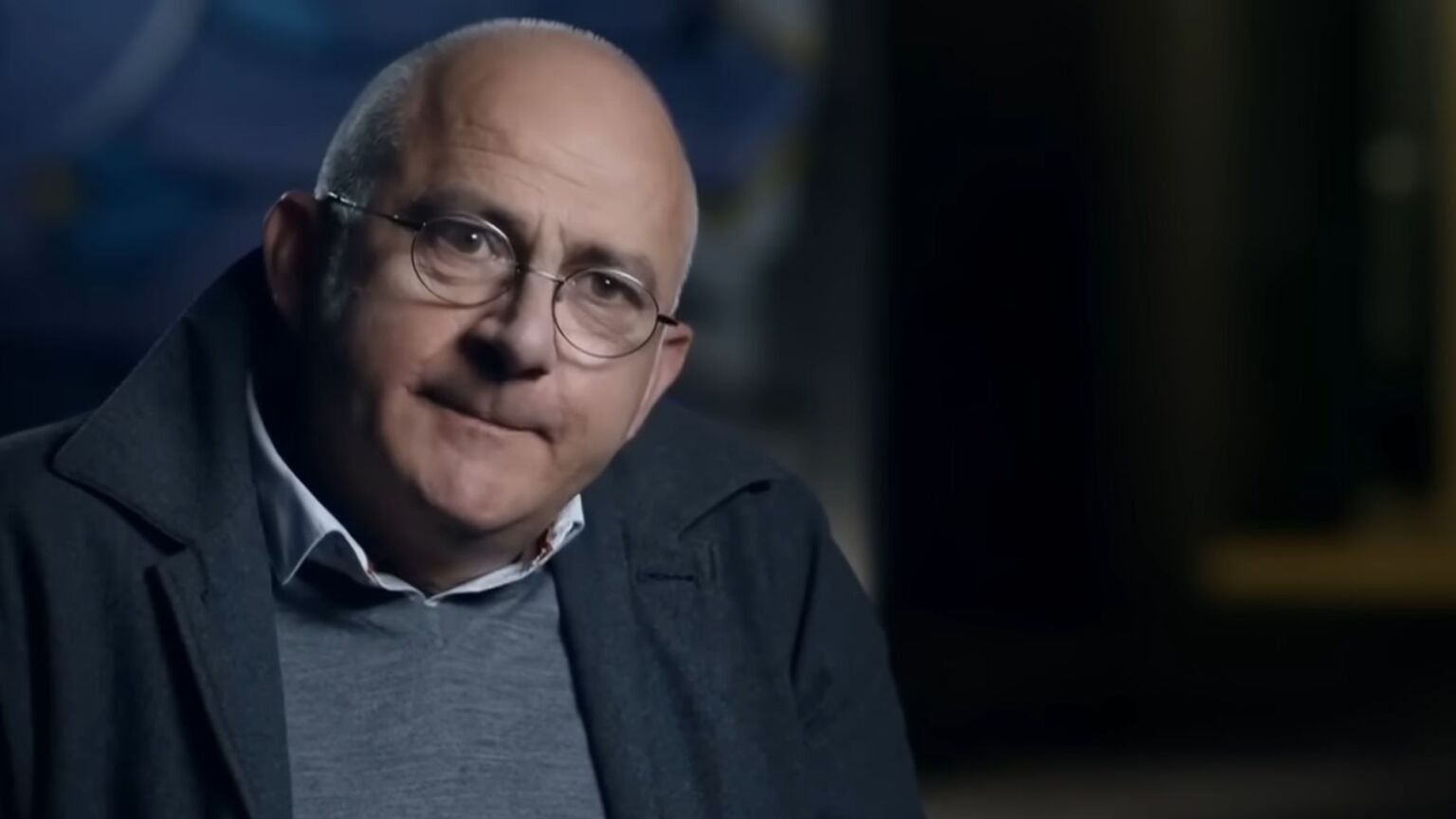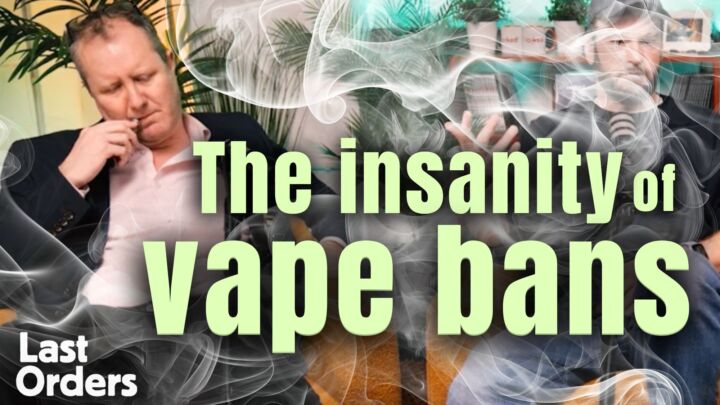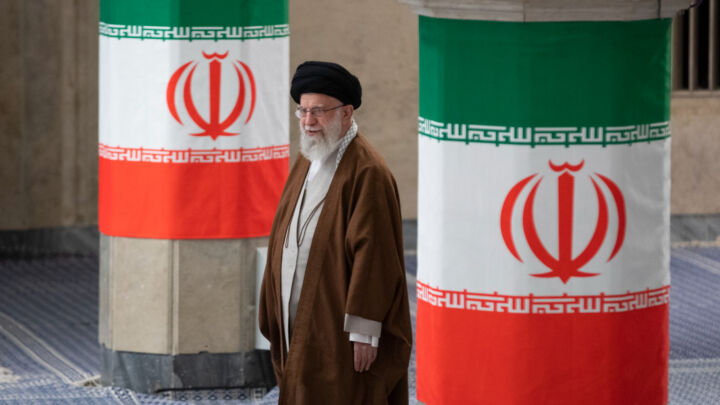Andrew Norfolk embodied the spirit of truth
His fearless coverage of the rape-gang scandal was journalism as its very finest.

Want unlimited, ad-free access? Become a spiked supporter.
Everyone knows George Orwell’s wise words on the liberty to utter. ‘If liberty means anything at all, it means the right to tell people what they do not want to hear’, he said. It’s a line inscribed by the entrance to BBC HQ in London, though its spirit has yet to enter the building itself. In recent years, the reporter, Andrew Norfolk, who died this week at just 60 years of age, was Orwell’s cry made flesh. In fact, with his fearless and tireless coverage of the rape-gang scandal, Norfolk gave liberty new meaning – he showed that if it means anything at all, it means the right to tell people what officialdom is absolutely adamant they should never hear.
Norfolk was the chief investigative reporter for The Times until he stepped down for health reasons in November last year. He is best known for his unwavering commitment to exposing the truth of Britain’s rape gangs. Whispers about such gangs had circulated for years. There was talk of a pattern in various towns, where gangs of mostly Pakistani Muslim men would prey on and horrifically abuse vulnerable girls mainly from the white working class. Officialdom seemed disinterested. Most journalists steered well clear. But then Norfolk came along. With extraordinary resolve, and at great personal cost, he dragged these horrors into the unforgiving glare of the public consciousness where they belonged.
His first big investigation was published in 2011. ‘Conspiracy of silence on UK sex gangs’, cried the front page of The Times. Rereading it today is a sobering experience. It’s all there. There is a ‘repeated pattern of sex offending in towns and cities across northern England and the Midlands’, Norfolk reported. ‘Most of the victims are white and most of the convicted offenders are of Pakistani heritage’, he said. But a ‘damaging taboo’ swirls around these sick crimes, his piece said, meaning they’ve been unforgivably veiled from public view. And in the darkness of this cowardly silence, girls suffered: the ‘culture of silence… facilitated the sexual exploitation of hundreds of young British girls’, he reported.
It was the rape-gang scandal distilled, brilliantly and chillingly, more than 14 years ago. Norfolk said out loud, right on the front page of our newspaper of record, what local officials and police forces snivellingly refused to say: that gangs of ‘predators’ were committing unspeakable crimes against poor and vulnerable girls. Norfolk didn’t spare the details. Girls, he said, were driven around the country to be ‘used for sex by older men’. Girls as young as 12 were having abortions. A victim in South Yorkshire, just 13, ‘appeared to have been raped more than 50 times’. Revisiting Norfolk’s nation-shaking piece makes it all the more galling that the phrase ‘grooming gang’ survived for so long – from day one it was clear these were rape gangs.
Norfolk broke the dam with that stirring piece. For years, officials had been shamefully silent on these obscene crimes. They feared being accused of Islamophobia, of being seen as ‘targeting [a] minority group’. And they dreaded the response of the white working classes if they were to learn of the existence of these Pakistani gangs. In shattering this silence, in rejecting the elites’ sickening belief that preserving the ideology of multiculturalism was more important than protecting working-class girls from rape, Norfolk did a profound moral service to the girls who were raped and to truth itself. He essentially said truth trumps all other concerns, and he was right.
He persevered with his reporting. Exposing these gangs is your full-time job now, the then editor of The Times, James Harding, told him. That your coverage is ‘unwelcome and uncomfortable’ for people in power makes it all the more important, Harding said. Norfolk shone the light of truth on these hitherto hidden atrocities. He covered case after case. Courtesy of his doggedness, we came to know the true horror of what had been inflicted on poor girls under the noses of a callously apathetic elite. A girl injected with heroin so she would be easier to rape. A girl raped a hundred times from the age of 12. The gangs delivered these girls ‘to hell’, said one prosecutor. It is horrible to know this, but it is essential to know it – and it is thanks to Norfolk that we do.
He was mauled and defamed for his Herculean efforts to reveal the truth. He received vile abuse and threats of violence. He was branded Islamophobic. He was written off as a ‘lying’ stooge of the Murdoch empire. In his own words, he found himself ‘dodging missiles and accusations from all the predictable directions’. As recently as January this year, the London School of Economics published a handwringing screed about how coverage like Norfolk’s unleashed ‘sensationalism’ and ‘racial stereotyping’. There he was, his hat hung up as a result of illness, being insulted by an academic elite that has never lifted a finger to help the working class.
The people who most noisily claim to be ‘speaking truth to power’ – whether it’s Hollywood celebs spouting the latest ‘liberal’ line or Guardian hacks writing their 10,000th piece about Gaza – are usually doing no such thing. They’re often saying what is easy, what is acceptable, what is welcome. Norfolk really did speak truth to power. The fury of officialdom and the ‘woke’ graduate classes in response to his reportage is testament to that. It’s become a cliché to say journalism should ‘comfort the afflicted and afflict the comfortable’. But that’s what Norfolk did. His coverage consoled the victims and enraged the people who covered up the obscenities they endured.
His truth-seeking changed the nation. Rotherham Council launched its inquiry into its rape gangs because ‘The Times won’t leave us alone’. He compelled our complacent rulers to account for their grotesque failures. He did something else, too – he reminded us of the searing virtues of a free press. In intruding on the ‘conspiracy of silence’, he asserted the public’s liberty to know over the establishment’s low instinct for censorship and self-preservation. ‘The free press is the ubiquitous vigilant eye of a people’s soul’, said Marx. ‘It is the spiritual mirror in which a people can see itself.’ Norfolk embodied that spirit of free and vigorous national self-reflection. In the vile squalor of the establishment’s cynical silence, girls were raped. In the light of Norfolk’s truth-telling, they were vindicated. Now we know: liberty saves lives. He deserves every accolade for reminding us of that.
Brendan O’Neill is spiked’s chief political writer and host of the spiked podcast, The Brendan O’Neill Show. Subscribe to the podcast here. His new book – After the Pogrom: 7 October, Israel and the Crisis of Civilisation – is available to order on Amazon UK and Amazon US now. And find Brendan on Instagram: @burntoakboy
You’ve hit your monthly free article limit.
Support spiked and get unlimited access.
Support spiked and get unlimited access
spiked is funded by readers like you. Only 0.1% of regular readers currently support us. If just 1% did, we could grow our team and step up the fight for free speech and democracy.
Become a spiked supporter and enjoy unlimited, ad-free access, bonus content and exclusive events – while helping to keep independent journalism alive.
Monthly support makes the biggest difference. Thank you.









Comments
Want to join the conversation?
Only spiked supporters and patrons, who donate regularly to us, can comment on our articles.